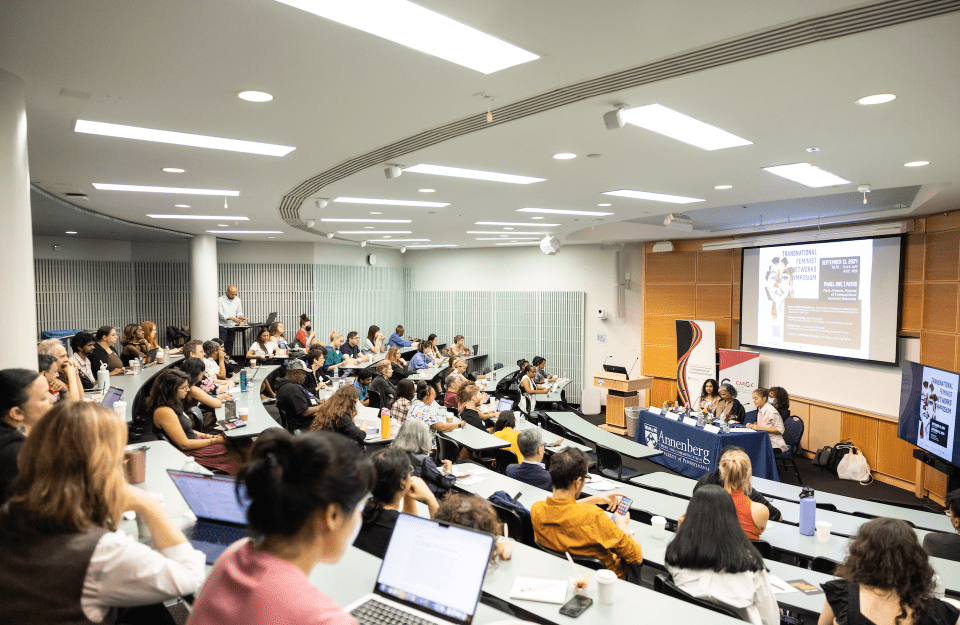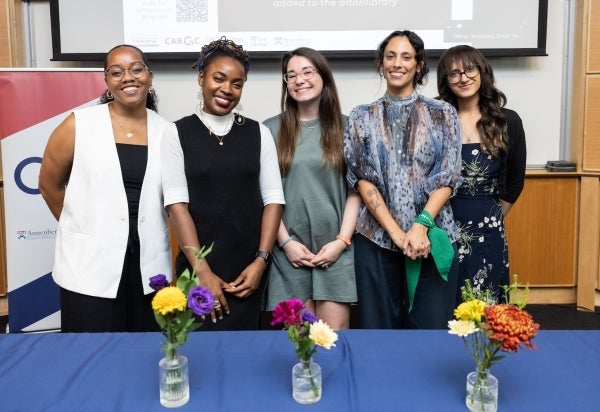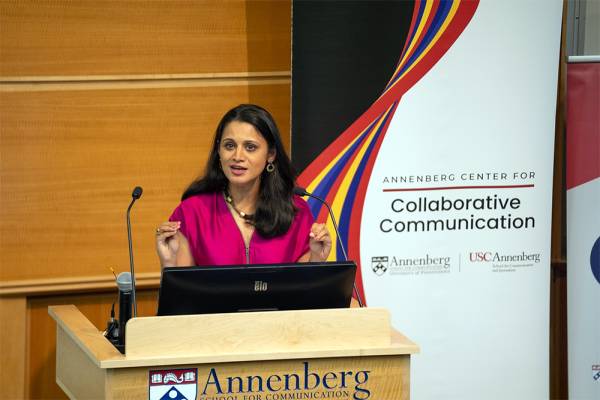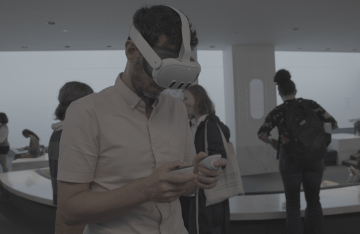Exploring Feminist Unity in Today’s Connected World: The Transnational Feminist Networks Symposium
A recent symposium at Annenberg examined the growth, upkeep, and difficulties of feminist solidarities in our connected world.

(Photo: Eddy Marenco)
In the last decade, a media-friendly, flashy “popular feminism” has gained traction — spread through hashtags, advertisements, television shows, and even global superstar Beyoncé’s single "***Flawless," which sampled Nigerian author Chimamanda Ngozi Adichie’s TEDx Talk, “We should all be feminists.”
Though popular feminism has introduced a new generation to feminist theory, it can often overshadow the everyday work of feminist groups that work both online and offline to fight gender-based discrimination and violence; far-right populism; and systemic attacks on the rights and bodily autonomy of women and gender-diverse individuals around the world.
On September 12 and 13, the “Transnational Feminist Networks Symposium,” a two-day conference at the Annenberg School for Communication at the University of Pennsylvania, brought together scholars, artists, and activists to explore how these networks communicate, create culture and critique, and imagine new ways of transnational feminist solidarity and connection.

Organized by a collective of Annenberg doctoral students — Cienna Davis, Sim Gill, Valentina Proust, and Lucila Rozas — and supported by the Annenberg Center for Collaborative Communication (C3), the Center for Advanced Research in Global Communication (CARGC), and the Center on Digital Culture and Society (CDCS), the two-day conference featured a keynote address by Srila Roy of the University of the Witwatersrand in Johannesburg; a conversation with artist Sonia E. Barrett; and three panels exploring the past, present, and futures of transnational feminist networks with scholars from across the world.
Panels included discussions of transnational feminist networks in Bangladesh’s Red July, digital feminist activism in Spain, the popularity of a South Korean feminist movement on English language TikTok, and much more.
“The concept for the symposium began with the students, the collective of students, insisting that feminists need to attend to the development maintenance and challenges of feminist solidarities in our globalized world,” said Sarah Banet-Weiser, Walter H. Annenberg Dean and Director of Annenberg C3 in her opening remarks. “This symposium aims to highlight discourses, collectivities, and the less obvious practices of solidarity that are often rendered invisible or insignificant within commercial and popular feminist hegemonies of the global north.”

The opening night set the tone for the discussions to come.
In her keynote, Roy discussed her experiences as a transnational feminist scholar in South Africa, emphasizing the challenges of decolonizing higher education and building alternative routes to knowledge production. She reflected on the limitations of South-South collaborations, noting the persistence of colonial knowledge hierarchies and the need for material redistribution to achieve true decolonization.

After the keynote, “(Digit)al Dread,” a film exploring Black hair care as a network of touch and connection, directed by symposium co-organizer and Annenberg doctoral student Cienna Davis, was screened, followed by a discussion between Davis and her collaborator Sonia E. Barrett, whose large-scale sculptural works, which sometimes use hair as a medium, explore connections between place, history, nature, and time.
In conjunction with the symposium, the student organizers, along with doctoral candidate and artist Azsaneé Truss, presented an art exhibition titled “Present Futures: Experiments in Feminist Futurity.” This exhibition is dedicated to envisioning feminist solidarities across space and time in everyday life, with a forward-looking perspective. All five students contributed artwork to the exhibit, and attendees also participated by adding to a collaborative collage that evolved over the two days.
The exhibition “Present Futures: Experiments in Feminist Futurity” will be on display in the Plaza and the Forum of the Annenberg School until November 19, 2024.



